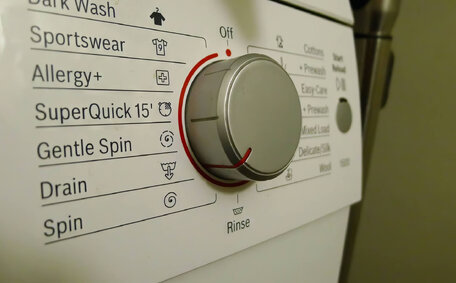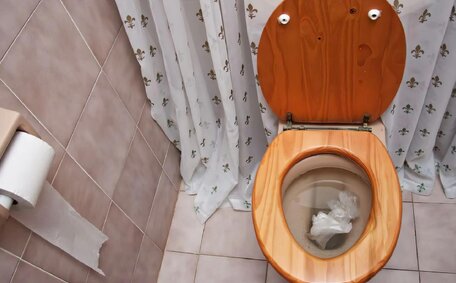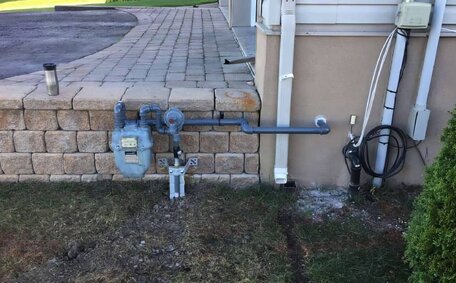Understanding What Causes Blocked Drains
Blocked drains in Padstow homes are frequently the result of everyday items and habits. Food scraps, coffee grounds, hair, and other debris down the drain are commonly responsible for the accumulation that leads to blockages.
Furthermore, non-degradable products such as baby wipes, sanitary items, and cotton tips should never be flushed, as they are a significant obstruction risk, complicating efforts to clear blocked drains.
It’s crucial to comprehend what commonly causes blockages to prevent such items from entering your plumbing system. Try to minimise washing fats, oils, and food waste down the sink. Install drain strainers to capture particles, assisting you to clean your pipes and protect your plumbing system.
Consider proactive maintenance steps such as pouring boiling water, using baking soda and vinegar mixtures, or adopting cleaning habits recommended by a professional plumber to counter grease accumulation and prevent serious blockages in your home.
Grease and Food Buildup
Grease and oil, accompanied by food particles that stray into your kitchen sink, can cause blocked household drains. Eventually, when items like rice, pasta, vegetables, and meat grease end up down the drain and get trapped, you could face completely obstructed pipes.
To avoid drainage issues, seek alternative disposal options for cooking grease and oil, which can compromise your drain when washed down. Scrub dishes thoroughly before rinsing to ensure food particles are disposed of in the rubbish bin rather than the sink, where they can cause blockages. Using sink strainers can catch stray particles preventing food waste from accumulating in a drain can when washing dishes.
You can turn to regular maintenance by ensuring water can flow freely with hot water down the drain in the kitchen sink as an effortless method to disintegrate oils and dissolve grease buildup before it can turn into a complete blockage. Be careful when dealing with PVC pipes to avoid exposing them to excessively hot water.
Tree Roots
In suburban settings like Padstow, renegade tree roots infiltrating underground drainage pipes pose a risk to your home’s sewer lines and are known culprits of severe blockages.
Early signs of blockage by tree roots in your pipes call for prompt consultation with a blocked drain plumber to prevent extensive damage. Rather than risking DIY methods, consider employing professional services such as mechanical root cutting for effective blockage removal.
CCTV drain cameras and specialised hydro jetting, employed in a professional plumbing inspection, can prevent thorough root blockages from reoccurring.
Hair and Other Debris
The buildup of hair and small debris in bathroom drains and kitchen sinks can readily result in clogged pipes. As hair, soap residue, and items like cotton swabs and toothpicks build up in the drain, one may ponder how these can contribute to clogged drains by getting caught inside the pipes.
Regularly removing drain covers or stoppers to clean out hair and debris is an easy preventative step to take. Employing cost-effective sink drain filters or screens can also assist in capturing particles before they venture into drain and accumulate into your piping. Regularly removing drain covers or stoppers to clean out hair and debris is an easy preventative step to take.
A practical example is Using a cup plunger, which can exert roughly 22 kilograms of force, can clear blockages effectively, unlike smaller sink plungers that exert approximately 2 kilograms of force, minimising the risk of pipe damage.
DIY Methods for Preventing Blocked Drains
There are numerous things can do at home, like routine flushing with hot water, to ensure a healthy plumbing system, including a few DIY tips to help prevent blocked drains:
- introduce a baking soda vinegar concoction which can make a difference to your drain, commencing with 1 cup of baking soda followed swiftly by 1 cup of vinegar and let sit. Allow the mixture to rest for an hour then observe as it actively foams and bubbles to tackle buildup. Then flush with hot water.
- For regular maintenance, using boiling hot water, pour a pot down the drain once a week. The heat generated will dismantle, liquefy, and use drain clearing techniques to rinse away components like grease build-ups.
- Use a coat hanger, artfully reshaped as a hook, to manually extract debris from bathroom sinks and showers that may cause clogs.
- Consider installing inexpensive sink strainers to catch food particles, hair, and other debris before it goes down the drain.
Natural cleaners such as a baking soda and vinegar mixture with boiling water are milder and safer for your pipes compared to harsh chemicals. Taking proactive steps and performing simple periodic drain maintenance can help avoid blockages altogether, preventing costly repairs to your sewer system.
Pouring Boiling Water Down Drains
Regularly pouring hot water down your sink drain is an effortless and natural method to prevent grease buildup and blockages. As hot water enhances water flow, it can help melt and wash away accumulated grease and oil.
Aim to pour a full kettle or pot of boiling water down sinks and drains weekly to clear any potential blockages. Be cautious not to use boiling water on PVC pipes as it can warp or damage your plastic material. If you have PVC plumbing, allowing water to cool for a few minutes before pouring can prevent any blocked drain can be damaged by extreme heat.
You can enhance drain maintenance by coupling boiling water with baking soda and vinegar treatments to maintain clear drains. The heat helps activate the reaction. Just make sure to flush with additional hot water after to clear the pipes of any residue.
Include hot water flushing as a simple routine activity to help safeguard your plumbing system from damage and avoid costly future repairs. Maintaining your drains is easier than dealing with a full clog.
Using Baking Soda and Vinegar
Combining baking soda with vinegar creates a surprisingly potent DIY solution to tackle drain clogs. The combination of an acid (vinegar) and a base (baking soda) results in a fizzing chemical reaction that helps clear your blocked pipes of gunk, grease, and buildup.
Begin with pouring a half cup of baking soda down your blocked drain as a strategy to avoid exacerbating clogs. Instantaneously, the mixture starts bubbling, fizzing, targeting to dissolve troublesome oil and grease clogs. Let the mixture sit hour or so, allowing the reaction to run its course, then pour very hot water to flush and rinse away any leftover residue.
Then add a half-cup of white vinegar.
Follow these tips to prevent drainage issues by performing this treatment monthly to maintain unhindered flow in your bathroom drains. The natural ingredients are safe for most pipes and won’t corrode plumbing like harsh chemical cleaners can over time. Be aware this method generates a decent amount of pressure, so avoid using it on cracked or otherwise damaged pipes.
Installing Drain Strainers and Filters
Fitting drain strainers or screens can prevent clogs in sinks and showers by capturing debris before it enters the pipes. Hair strains, sink baskets, tub shroom drain devices, and in-line sink filters trap particles while still allowing water to pass through freely.
Regular cleaning of strainers and filters can remove built-up debris, ensuring your drains remain clear. Simply unscrew or lift them out, remove any hair or particles, then replace. Filters may need replacing every 6-12 months depending on usage.
When installing, make sure you get the correctly sized strainer or filter for your plumbing fixtures. Use Teflon tape to create a tight seal around threads to prevent leaks. Hand tighten only, being cautious not to crack porcelain sinks or tubs.
Used preventatively, drain filters and strainers minimise expensive clogs down the line and reduce the amount of hair and particles making it into main drains and sewers, benefitting the whole drainage system.
Professional Drain Maintenance
To ensure long-term health of your drainage system and prevent expensive blockages, schedule regular professional maintenance with a reliable local plumber, such as Padstow Plumbing.
Advanced services like CCTV pipe inspections accurately identify issues like tree root invasion, cracks, and other damage that drains can experience. The hydro jet technique demonstrates how prevent blocked pipes can be thoroughly cleared while cleaning the full length of the drainage system.
Skilled plumbers can utilise chemical drain cleaners, drain snakes, and advanced augers to resolve drainage issues while maintaining the integrity of your pipes.
Proactively maintaining your pipes, including professional drain cleaning, can extend their lifespan, prevent odours, mitigate flooding risk, and ensure compliance with wastewater regulations.
Contact our team today on 1300 349 338 or [email protected] to schedule affordable drain maintenance.
Hydro Jetting
Hydro jet drain cleaning is an advanced method used by professional plumbers to clear difficult blockages. It involves firing a highly-pressurised stream of water through pipes to scour the walls and dislodge buildups.
Hydro jetters can generate up to 5000 PSI to thoroughly wash out grease, soap residue, food waste, tree roots and other debris contributing to drain blockage over time. When comes to delivering powerful cleaning, the stream is powered by an industrial water pump and fed through specialty nozzles on long hoses accessing pipes via drain access points.
Compared to snaking drains or using harsh chemical cleaners, hydro jetting is a safer, more effective and eco-friendly solution. It cleans the entire circumference of pipes without risking cracks or leaks. Frequent jetting can help avoid total pipe blockages and extend longevity.
For severely clogged and damaged drains, Padstow Plumbing has state-of-the-art hydro jetting equipment to restore free flow. Contact our team today to learn more about this superior unblocking method.
Pipe Inspections
Routine pipe inspections by plumbers can reveal any potential issues, securing a situation where water cascades down the drain, unimpeded by threatening blockages. Professionals utilising CCTV cameras can thoroughly inspect and clear your interior piping conditions, from sewers to underground pipes.
Any cracks, leaks, root invasion or signs of broken pipes can be clearly identified. Pipe alignments, junction connections and the source of drain blockages can also be identified. This enables strategic repair work rather than blanket pipe replacements.
For homeowners, you can conduct your own preliminary checks before using a professional CCTV inspection to provide peace of mind by pinpointing risks early. Any damaged sections of pipe found can then be lined or patched to prevent debris catching and accumulating into larger clogs.
Padstow Plumbing has industry-leading CCTV pipe inspection equipment. Contact our team to schedule an affordably-priced camera drain survey today.
Chemical Treatments
Although chemical drain cleaners may appear to be a quick fix, they should only be used with caution by professionals. Chemicals like lye or sulfuric acid can clear materials like hair, grease, and soap residue, but they risk corroding pipes if overapplied.
Safer enzyme cleaner options are available too. They use bacteria to break down organics. However, chemical residue can still harm facilities downstream if it isn’t thoroughly flushed out your property’s drainage system.
The best approach is addressing issues early before chemical intervention is needed. Schedule maintenance like jet washing over rodding, use boiling water safely to clear fats, and screen debris with basket strainers. This way, your pipes stay clear of soap scum while protecting the environment.






